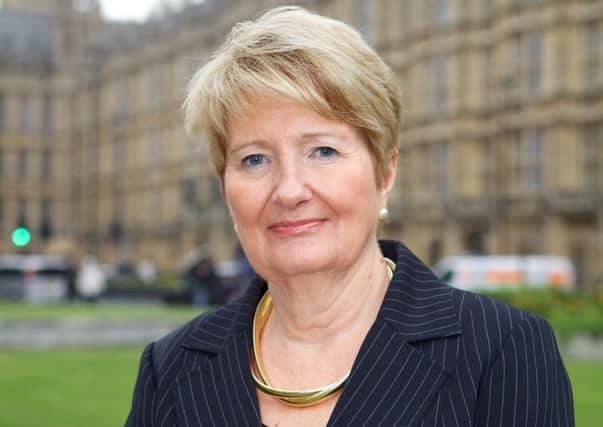MLAs must reject growing pressure to liberalise abortion


But recently the pressure has been growing to liberalise abortion laws here, especially after a recent High Court ruling that the current abortion laws are incompatible with human rights. Following amendments tabled by MLAs to the Justice Bill, the Assembly will debate abortion laws next Wednesday.
The first set of amendments, tabled by Alliance Party MLA’s Trevor Lunn and Stewart Dickson would allow for abortion on the grounds of fatal foetal abnormality.
Advertisement
Hide AdAdvertisement
Hide AdThe second set of amendments, put down by Green Party leader Steven Agnew MLA and Basil McCrea MLA would allow for abortion on the grounds of rape as well. And a third groups of amendments put down by Anna Lo MLA, really echo the Agnew/McCrea amendments.
This is one of the most significant debates ever held at Stormont. Feelings will be running high. Everyone agrees fatal foetal abnormalities or sexual crimes resulting in unplanned pregnancies are deeply traumatic for the people involved.
Yet we remain convinced that these amendments are not the right way forward. Firstly we do not think these amendments have been adequately scrutinised prior to this debate. Matters of such controversy should be subject to full Assembly scrutiny. Moreover matters relating to abortion law in NI are the subject of an on-going court case so this debate is premature.
Secondly, the amendments will have unintended legal consequences because of a number of flaws in how they have been written. The amendments fail to properly define what actually constitutes fatal foetal abnormality.
Advertisement
Hide AdAdvertisement
Hide AdIf these amendments are accepted, doctors will be left trying to decide what degree of fatal foetal abnormality qualifies for legal protection and what actually constitutes serious disability. Suddenly, doctors will be making profound ethical social and moral judgements, far beyond their remit. It will alter medical care by turning doctors and medical staff into judges and judiciaries.
Finally, the major concern we have is ethical. In the Christian worldview, every life has a beautiful and inherent value to it and disability, abnormality or any other defect should make no difference to this reality. These amendments are incompatible with this view. The testimony of many parents who have had children born with fatal abnormalities is that they have cherished the time spent, whether days, months or even years, with their child. In rare incidents where the mother’s life is in danger, we appreciate abortion may be the only option to prevent two lives being lost. But this new debate is really a very old one. It comes down to where we place the value of life. We argue life begins at conception and the baby even at this early stage has value. If we legalise abortion on grounds of fatal foetal abnormality or sexual violence we will send a message that the lives of some unborn babies are less valuable than others. We cannot support this.
While appreciating the strength of feeling on both sides, we hope MLAs have the conviction to reject these amendments. We support a sensitive, pastoral approach for woman who experience sexual crime and unplanned pregnancy. We want to make sure our unborn children have a voice who will speak for them. In a debate that quickly becomes all about personal choice and individual rights, we must not forget the vulnerable babies in the womb. They too should have a voice.
• Nola is chief executive CARE NI